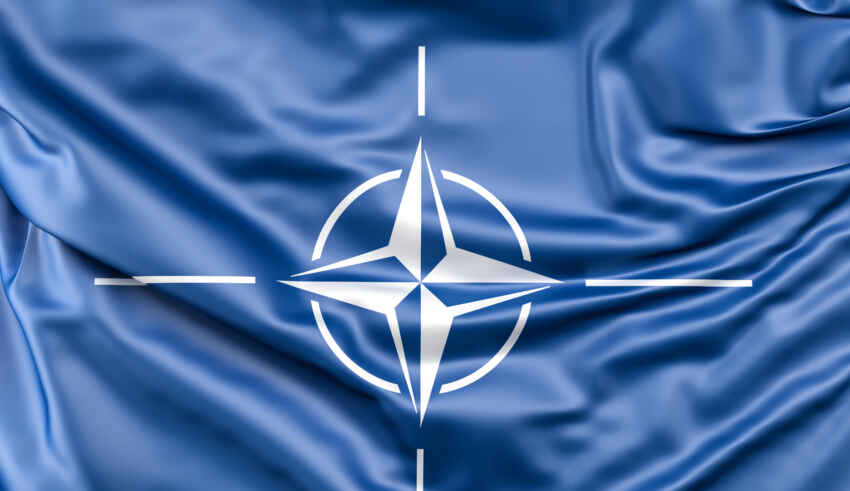
In the aftermath of World War II, the North Atlantic Treaty Organization was established in 1949. The alliance was formed as part of an effort by the United States and its European allies to dissuade any expansion of the then-Soviet Union (USSR) and to lessen the likelihood of conflict on the continent by supporting deeper political unity among its countries. It has progressively expanded its trajectory in the decades afterward, absorbing a course of Central and Eastern European republics after the fall of the USSR. This expansion has alarmed Moscow, which is concerned about the Brussels-based alliance encroaching on its borders and encircling it from the West.
The ongoing conflict in Ukraine has demonstrated the importance of NATO (North Atlantic Treaty Organization) in maintaining regional peace. It keeps the situation steady and safeguards against disaster. With Ukraine experiencing issues from both the outside and the within, the organization has become crucial in upholding the norms of self-rule and border respect. Ukraine’s security is critical to NATO and its member countries. Ukraine’s inherent right to self-defence, as well as its freedom to determine its own security arrangements, are fully supported by the Alliance. NATO is Ukraine’s future.
NATO’s presence in Eastern Europe is a major deterrent to potential attacks. It warns any prospective aggressor that if they attempt to disrupt Ukraine’s legitimate rule, numerous powerful nations will come together and be of help. The guarantee made by NATO in Article 5 of the NATO Treaty to safeguard all members collectively is critical. This protects Ukraine against potential attacks by other countries. NATO member nations’ assistance and collaboration with Ukraine strengthens their defence, keeping others at bay. This also contributes to the area’s quietness by preventing potential difficulties.
Security concerns have resurfaced among NATO members, making the alliance even more significant. Sweden and Finland have abandoned decades, if not centuries, of neutrality and now wish to join the alliance, which was unthinkable prior to February 2022.
Ukraine’s fight against Russia’s open aggression elicited strong emotions and garnered widespread support. European countries, often driven by public opinion, reacted more firmly than they would have if Russia had won quickly. However, a weak Ukrainian defence or an expensive protracted battle might erode European cooperation. Although Russia’s invasion and Ukraine’s resistance have reduced pro-Russian factions throughout Europe, they remain in positions of power, frequently as part of dominant political coalitions.
NATO’s impact extends beyond military considerations to include a commitment to democratic ideals and the rule of law. As Ukraine moves toward democratic administration, the alliance provides crucial assistance via political discussion, institution-building, and the promotion of democratic principles. NATO acts as a light for democratic norms, providing Ukraine with a framework for political change and emphasizing the significance of transparent and responsible administration.
The alliance’s role in shaping the security architecture of Eastern Europe cannot be overstated. By fostering cooperation among member states and partners, NATO contributes to a collective security environment that benefits Ukraine and its neighbours. Through initiatives like the Partnership Interoperability Initiative and the Euro-Atlantic Partnership Council, NATO facilitates collaboration on security issues, intelligence-sharing, and joint efforts to address emerging challenges.
In conclusion, NATO’s importance in Ukraine is multifaceted, ranging from deterrence against attack to the promotion of democratic values and the development of a safe regional architecture. As Ukraine navigates complicated geopolitical forces, the alliance remains a reliable partner, providing both practical military assistance and a foundation for democratic progress. The alliance’s commitment to preserving the sovereignty of its members, including Ukraine, demonstrates the alliance’s long-term value in promoting peace and stability in the larger European environment.
By The European Institute for International Law and International Relations
References
Jenkins, B. M. (2023, March 2). Consequences of the war in Ukraine: NATO’s future | rand. https://www.rand.org/pubs/commentary/2023/03/consequences-of-the-war-in-ukraine-natos-future.html
Staff, A. J. (2022, February 16). NATO and the Ukraine-Russia Crisis: Five key things to know. https://www.aljazeera.com/news/2022/2/15/explainer-nato-and-the-ukraine-russia-crisis
Nato. (2023, December 14). Relations with Ukraine. NATO. https://www.nato.int/cps/en/natohq/topics_37750.htm#:~:text=The%20security%20of%20Ukraine%20is,Ukraine’s%20future%20is%20in%20NATO.















